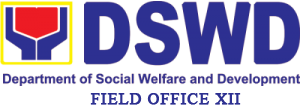GENERAL SANTOS CITY, April 24 — A senior government official praised the Department of Social Welfare and Development (DSWD) 12 for the good implementation of Conditional Cash Transfer program in Mindanao.
“In general, the implementation of CCT is excellent. Let’s continue it. I’m glad to note that the status of nutrition in Malapatan, especially among 0-6 years old, not problematic,” said Azucena Dayanghirang, National Nutrition Council deputy executive director.
Dayanghirang was part of the National Advisory Committee (NAC) that conducted a house-to-house visit among residents covered by Conditional Cash Transfer in Malapatan town in Sarangani last week to get their views on how to improve government’s social protection programs.
Specifically, Dayanghirang’s group look into the transition of exiting beneficiaries and on implementation concerns of children beneficiaries enrolled in senior high school.
“We noted in Malapatan they have breastfeeding facility and with that we emphasize the important of first 1000 days program where the health services needed from the pregnancy of women up to the birth of a child,” she said.
“We saw personally local leaders have birthing facility. In fact in the village of Lun Padidu i learned around 35-40 monthly deliveries of pregnant women. It only shows that the midwife assigned in the village very effective,” she explained.
DSWD 12 regional director Bai Zorahayda Taha said the visit aims to provide venue for the committees to discuss Pantawid Program implementation issues/concerns and identify corresponding policy recommendations and operational improvements.
Dir. Taha said most of the members of the NAC led by USEC. Ma. Lourdez Turalde-Jarabe spent time with beneficiaries and conducted a focus group discussion with them where the clients raised their concerns in the project implementation.
In Region 12, there are more than 250,000 beneficiaries under the program that requires recipients to send children to public schools and mothers to regularly visit public health centers.
In exchange of that, the program gives each household a P500 monthly allowance to subsidize its basic food needs and additional P300 for every child that goes to school. At least three children from a family can get the school allowance. (End)
